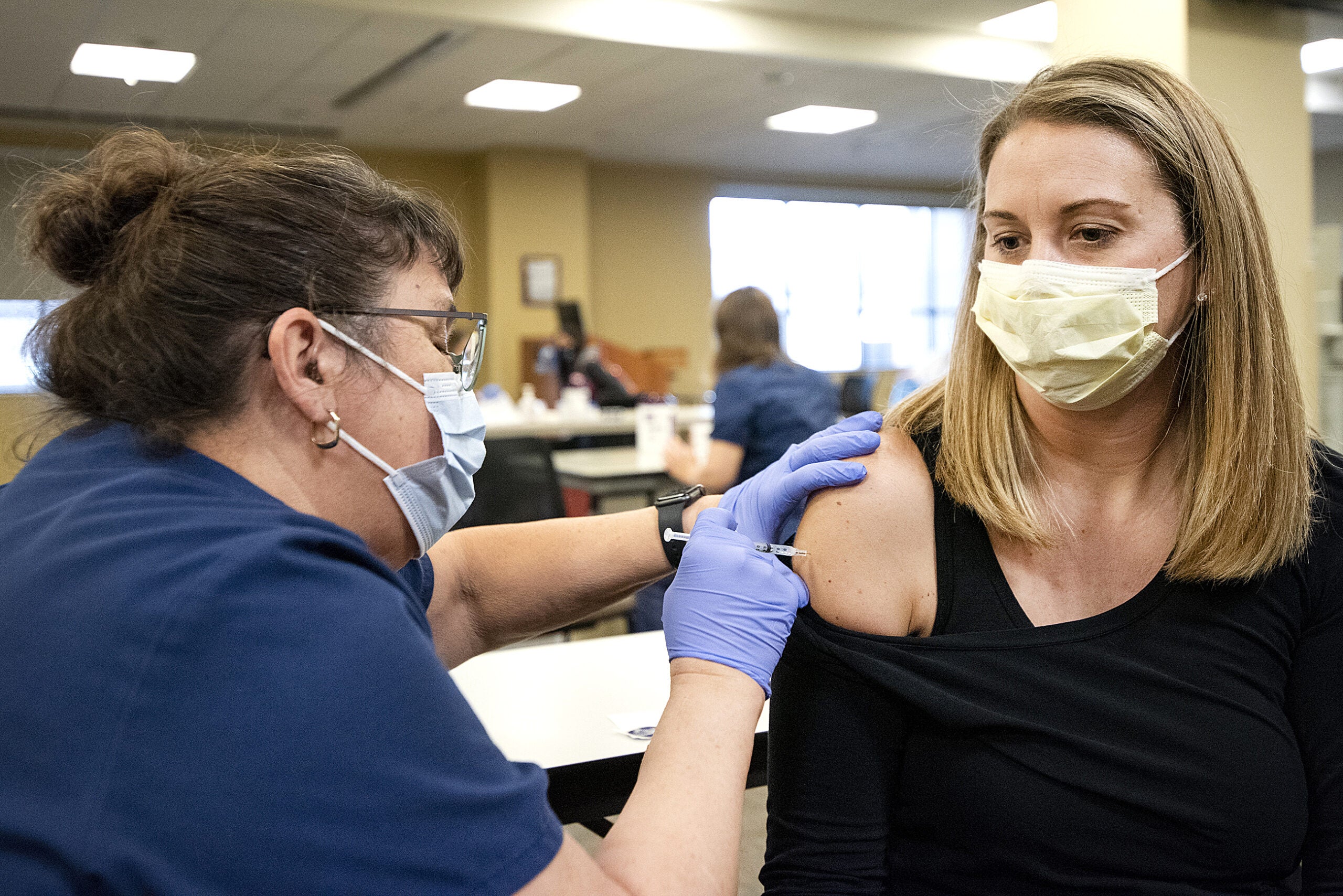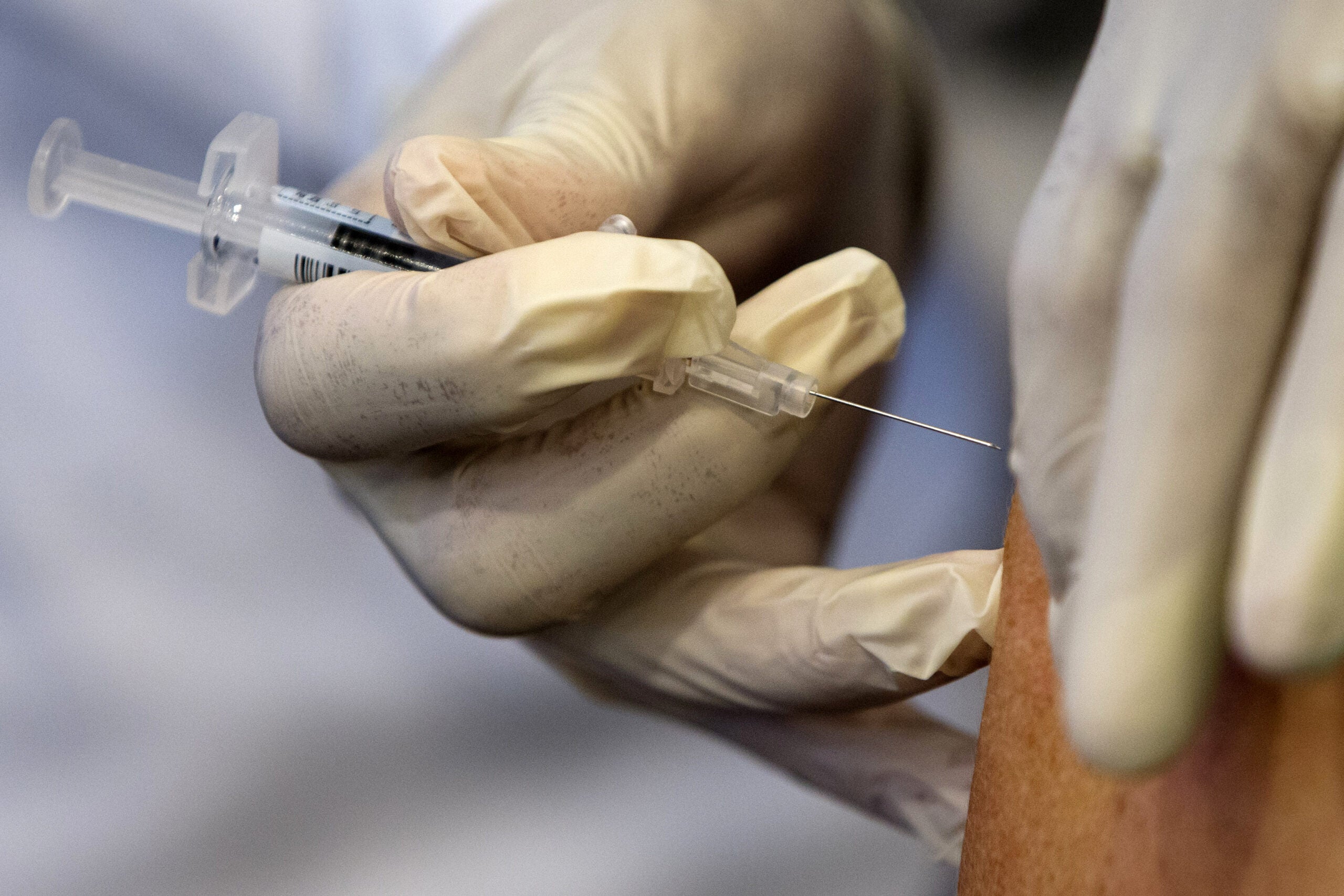As hospitals fill up, public health officials in Wisconsin have renewed their pleas for people to get vaccinated against COVID-19 and also receive a booster shot.
Whether additional shots are voluntary or mandatory is something hospitals are now deciding for their employees, as research begins to show boosters increase protection against the new omicron variant.
Some large national organizations have already mandated boosters.
News with a little more humanity
WPR’s “Wisconsin Today” newsletter keeps you connected to the state you love without feeling overwhelmed. No paywall. No agenda. No corporate filter.
On Monday, the National Football League announced some team staff who work closely with players will have to get a booster.
This summer, as the delta variant pushed COVID-19 cases upward, hospitals around the state started requiring staff to get vaccinated to protect their workforce and vulnerable patients.
In June, SSM Health, a regional health care system with hospitals in Wisconsin and three other states, was the first in the state to announce it would require its employees to be vaccinated.
SSM Health does not currently require booster shots for staff.
“Our Infectious Disease and Employee Health teams continue to monitor the situation, but at this time no changes have been made to our policy or definition of fully vaccinated,” Lisa Adams, a spokesperson with SSM Health, told Wisconsin Public Radio.
UW Health has hospitals and clinics across the state and northern Illinois. It has a COVID-19 vaccine mandate, but does not require staff to get a booster.
“We do not currently require staff to get boosters as part of our vaccine mandate. We do however, strongly encourage it and thousands of our employees have already received a booster of the COVID-19 vaccine,” Emily Kumlien, UW Health press secretary, said.
Marshfield Clinic, which operates in northern, western and central Wisconsin, is also not requiring boosters at this time, said John Gardner, director of communications.
While some hospitals in the state had high vaccination rates among staff before mandating COVID-19 shots, the requirement has not been accepted as readily at other health care facilities, especially nursing homes.
There’s concern a booster requirement could prompt staff to leave or be fired at a time worker shortages are widespread. Rural hospitals in Wisconsin that haven’t required employees to be vaccinated against COVID-19 say they expect mandates will require many workers to quit.
But a recent survey by the Wisconsin Office of Rural Health found very little attrition. As WPR reported, hospitals that had not required workers to get vaccinated estimated they would lose more than 20 percent of their staff if they did so. But those with a COVID-19 vaccine requirement reported between zero and 4 percent of staff had actually resigned as a result of the mandate.
State and local health officials have recommended everyone over age 16 and older get a COVID-19 booster shot. As of Wednesday, 1.3 million people in Wisconsin had received a booster or additional dose.
A study out of Israel published in the New England Journal of Medicine last week compared those who’ve had two doses of vaccine to those who also got a booster. The latter were 10 times less likely to get COVID-19 than those who were vaccinated but not boosted. And the boosted group was also 18 times less likely to get severe infection.
“These numbers are really quite staggering. The vaccine is very effective. But the protection that’s added from that booster is really critical,” said Dr. Ben Weston, an associate professor at the Medical College of Wisconsin and health policy advisor for Milwaukee County.
Wisconsin Public Radio, © Copyright 2025, Board of Regents of the University of Wisconsin System and Wisconsin Educational Communications Board.







